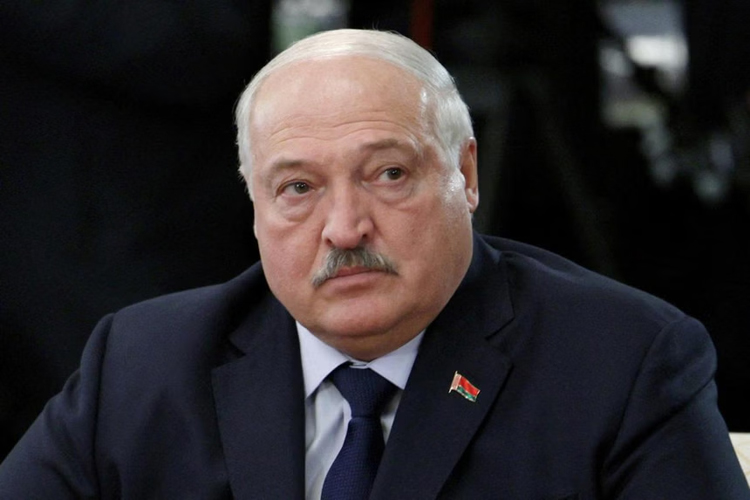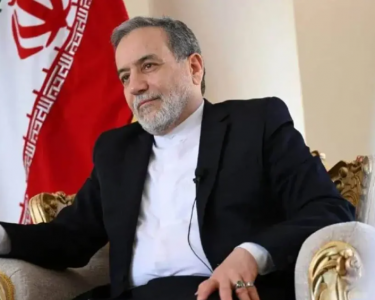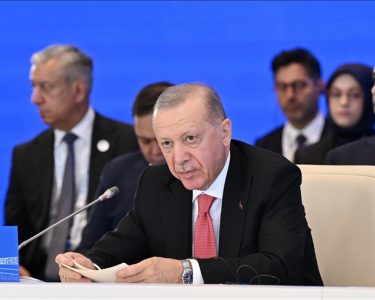
MINSK, Jan 27 (NNN-AGENCIES) — Europe’s longest-serving leader, President Aleksandr G. Lukashenko of Belarus, cruised to his seventh election victory in a row on Sunday in a contest that his exiled opponents dismissed as a sham.
A survey of voters leaving polling places that was released by state media on Sunday evening showed Lukashenko getting 87.6 percent of the vote, more than the 81 percent he claimed to have won in 2020. Exit polls are controlled by the state like all aspects of elections in Belarus and generally reflect the ultimate outcome.
Sunday’s election was a tightly controlled and tame affair, featuring only candidates loyal to the president. None expressed any desire to actually defeat Lukashenko, who has ruled Belarus with an iron fist since 1994.
Three candidates running against Lukashenko, according to the exit poll, garnered less than two percent of the vote each. A fourth, the leader of the Communist Party, Sergei Syrankov, captured 2.7 percent.
At a televised election debate last week, which the president did not join, Syrankov, said he wanted to be “honest,” acknowledged: “Everyone in this studio knows that Aleksandr Lukashenko is going to win.”
With all of Lukashenko’s prominent opponents either in jail or in exile and Belarus’s media outlets all cheering for the incumbent, the result was a foregone conclusion. But it is one that still mattered to the president, who is eager to show his country — and also President Vladimir V. Putin of Russia — that the turmoil of 2020 has been tamed.
In a statement on Sunday, the European Union’s foreign policy chief, Kaja Kallas, described the election as a “sham” that “has been neither free, nor fair.”
But foreign election observers, drawn from far-right political parties like Alternative for Germany and other pro-Russian groups, hailed the vote as a triumph for democracy and denounced tart criticism of the election by the European Parliament and other institutions.
“They say that there is a dictatorship here, but I don’t think so — the reality in Belarus is completely different,” Krastyo Vrachev, an observer representing a fringe nationalist party from Bulgaria, told Belarus’s state news agency. “People are calm and communicate with ease; in Europe this is not at all the case,” he added.
The election was certainly calm, so much so that Lukashenko barely bothered to campaign, saying he was too busy to take part in a debate with four state-selected rival candidates or to hold rallies. In a nod to conventional politics, however, last week he signed a decree raising pensions by 10 percent starting Feb. 1.
A recent survey of public opinion in Belarus by Chatham House, a British research group, indicated widespread dissatisfaction with the economy, which has been hit hard by economic sanctions imposed on the country over its support for Russia’s February 2022 invasion of Ukraine. Just 11 percent of respondents were definitely satisfied with the economy, while only 32 percent said they supported Russia’s invasion.
Lukashenko’s main appeal, according to the survey, is his “favorable image” as a “politician striving to prevent Belarus from being involved in the military conflict following the Russian invasion of Ukraine.”
Russian troops used Belarus as a staging ground for an initial, abortive thrust toward Kyiv in early 2022, but Lukashenko has resisted pressure from Moscow to send Belarus’s troops to join the fight against Ukraine.
After casting his vote Sunday in Minsk, the capital of Belarus, Lukashenko predicted that “there will be some kind of resolution this year,” to the conflict, adding that President Trump “is not an idiot, not a fool” and recognizes that “you can’t push us around,” referring to Belarus and Russia. “We will see light at the end of the tunnel this year,” he said of the war.
His nominal rivals in Sunday’s vote all avoided criticism of Lukashenko, who brooks no open dissent and has embraced his moniker as “Europe’s last dictator,” an insult coined in 2005 by the U. S. secretary of state at the time, Condoleezza Rice.
While delighting in taunting the West, particularly neighboring Poland, and displaying his loyalty to Moscow, Lukashenko has in recent months signaled a desire to improve frosty relations with Western capitals by releasing political prisoners.
This process, widely seen as an effort to get relief from Western sanctions, continued on Friday when Lukashenko pardoned 15 more prisoners, including five people jailed for “extremist crimes,” a blanket term used to describe criticism of the president. The names of those released were not made public.
US Secretary of State Marco Rubio, in a social media post on Sunday, indicated that they included a United States citizen whom he identified as Anastasia Nuhfer, “who was taken under JOE BIDEN!” he said in the post. Rubio said Nuhfer had been “unilaterally released,” thanks to President Trump’s leadership.
At a news conference in Minsk on Sunday, Lukashenko denied that he was releasing prisoners to curry favor abroad, saying, “I don’t give a damn about the West.” He said his decision to set some people free “is based on the principle of humanity.”
None of Lukashenko’s most prominent opponents, who include exiled opposition leader Svetlana Tikhanovskaya’s husband, Sergei, have been set free. The United States and the European Union have left sanctions in place.
In a sign that the authorities are hoping for a more sympathetic hearing from the new Trump administration, Belarus’s state media last week reported gleefully that, following the inauguration in Washington, the State Department had removed from its website a statement critical of Sunday’s election that had been made by the outgoing secretary of state, Antony J. Blinken.
Blinken’s deleted statement denounced the Belarus election as a farce, saying, “The United States joins many of our European allies in assessing that elections cannot be credible in an environment where censorship is ubiquitous and independent media outlets no longer exist.” — NNN-AGENCIES






